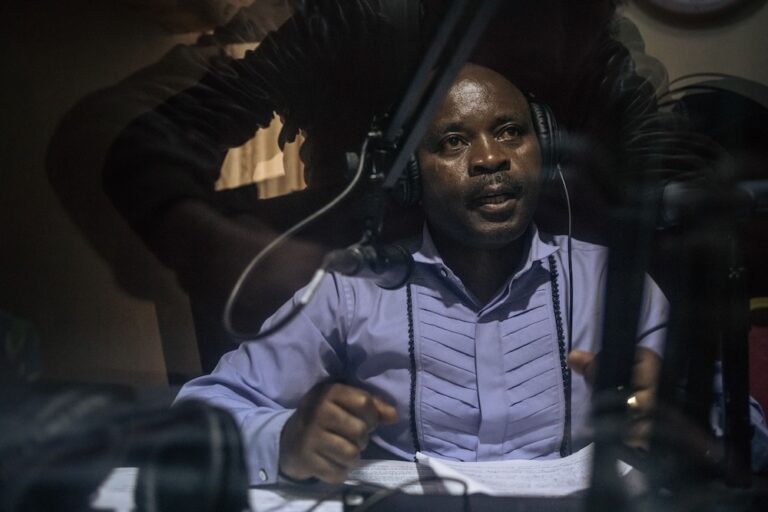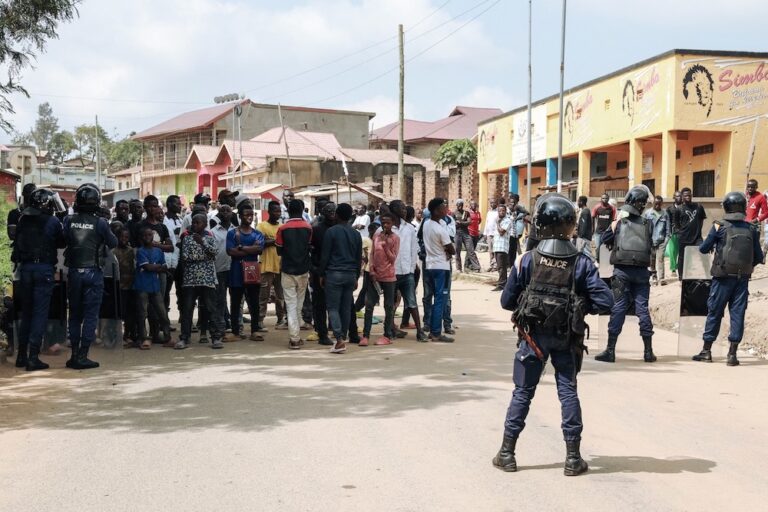(RSF/IFEX) – RSF has condemned a sudden crackdown on broadcast media, on 18 January 2005, in which broadcasts of three stations were cut without any warning or court order. In addition, specialised and religious radio and television stations were told they can no longer broadcast talk shows and phone-in programmes or political programming. “Suspending or […]
(RSF/IFEX) – RSF has condemned a sudden crackdown on broadcast media, on 18 January 2005, in which broadcasts of three stations were cut without any warning or court order. In addition, specialised and religious radio and television stations were told they can no longer broadcast talk shows and phone-in programmes or political programming.
“Suspending or banning news media in this fashion is never an appropriate solution to editorial excesses. Religious and community radio stations are the principal news and information source for citizens throughout the country, so it is unacceptable to prevent these stations from covering the news,” the organisation said.
RSF added that the best way to avoid dangerous abuses was to “make journalists aware of their responsibilities.”
On 18 January, broadcasts of Canal Congo TV (CCTV), Canal Kin TV (CKTV) and Radio Liberté Kinshasa (RALIK) were suspended. The Binza Méteo transmission centre received a call instructing it to cut the signals of all three stations, on the orders of Press and Information Minister Henri Mova Sakanyi.
The three stations belong to former rebel leader Jean-Pierre Bemba, who is now one of the country’s four vice-presidents under a power-sharing agreement. Bemba’s relations with President Joseph Kabila are currently very tense.
Journaliste en danger (JED), a local RSF partner organisation, said the decision to suspend the three stations’ broadcasts was taken after a press conference held by former transport and communications minister Joseph Olenghankoy, who heads the Renovating Forces for Union and Solidarity (Forces Novatrices pour l’Union et la Solidarité, FONUS), a member of the shaky ruling coalition.
Olenghankoy reportedly referred to President Kabila as a “foreigner” and accused him and his associates of embezzlement, “collusion with the forces of aggression” and of possessing a “private militia consisting of Interahamwe and former members of the FAR [Rwandan Armed Forces],” who were responsible for the 1994 Rwandan genocide.
In a statement released on 18 January, the press and information minister said religious and specialist radio and television stations were being banned from “broadcasting political and news programmes” because of their “persistent excesses.” He added that, “in accordance with the regulations,” these radio and television stations were banned from “serving as a support for political propaganda,” and that “all phone-in programmes are suspended until further notice.”


